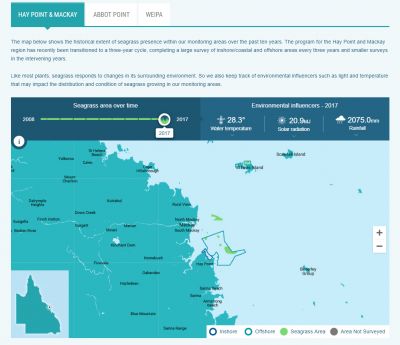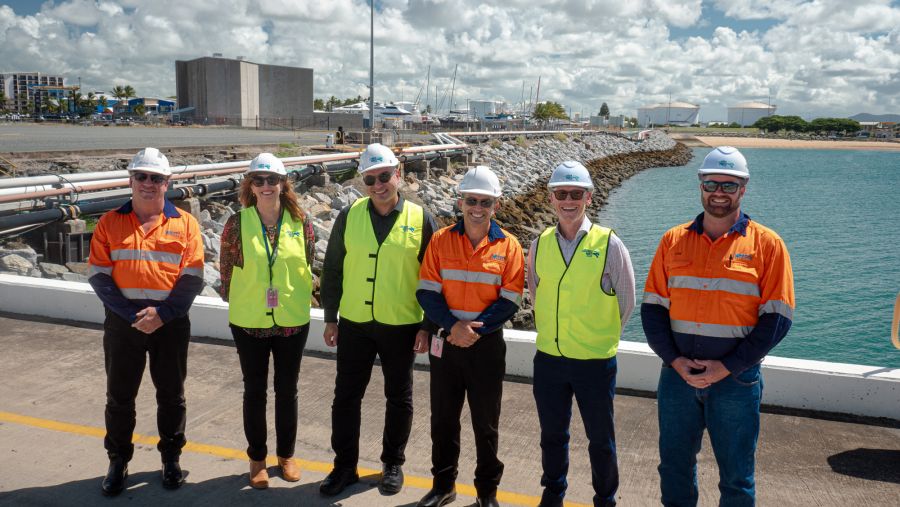Seagrass monitoring data turned into an online dashboard
An environmental dashboard which allows the public to monitor the health of seagrass communities across North Queensland Bulk Ports’ (NQBP) four operating ports is now live.

Seagrasses are a critical coastal marine habitat and a key indicator of overall marine health.
In one of our longest-running environmental programs, NQBP conducts surveys every year, covering more than 30,000 hectares of seafloor.
NQBP Chief Executive Officer Nicolas Fertin said conservation of the natural environment is at the forefront of NQBP’s business planning and operations.
“We place significant importance towards the investment in local environment stewardship,” he said.
“To have dedicated resources which encourages scientific research and in turn shares that data and knowledge publicly demonstrates the value that ports provide beyond trade.”
The data gathered enables NQBP to track distribution, density and seasonality of the seagrass.
It also allows us to establish naturally occurring fluctuations and determine how external factors may potentially impact these important marine habitats.
Through a partnership with scientists at James Cook University (JCU), NQBP has been able to collect data on seagrass growth around our port sites for more than 20 years.
In addition to informing NQBP environmental activities and port operations, the seagrass data has contributed to advances in an international body of seagrass knowledge through JCU’s academic research and regional report cards developed to help monitor the health of waterways.
JCU principal scientist Dr Michael Rasheed said that the partnership to monitor seagrasses has provided one of the longest running sources of information on seagrass change in the world.
“Such long term data sets are rare, and have revealed fantastic insights into how these important fish nursery areas are coping with environmental change and severe weather events such as cyclones” he said
“As a result of this monitoring program and associated research we are in a far better position to understand and manage tropical seagrasses - a key food for dugongs and green turtles in our part of the world.”
The dashboard provides a publically accessible site where current and historical condition of seagrasses can be easily viewed
The seagrass monitoring dashboard complements our air quality monitoring data which went live last year.


